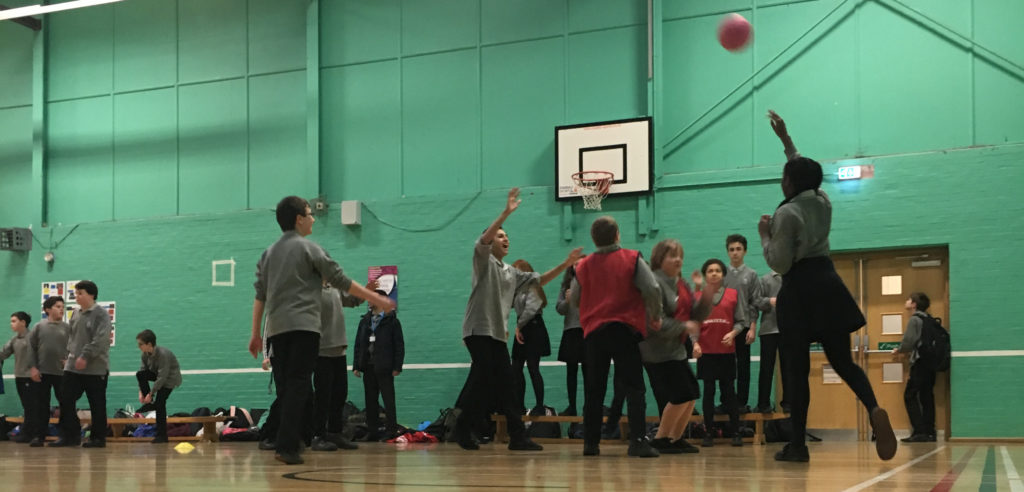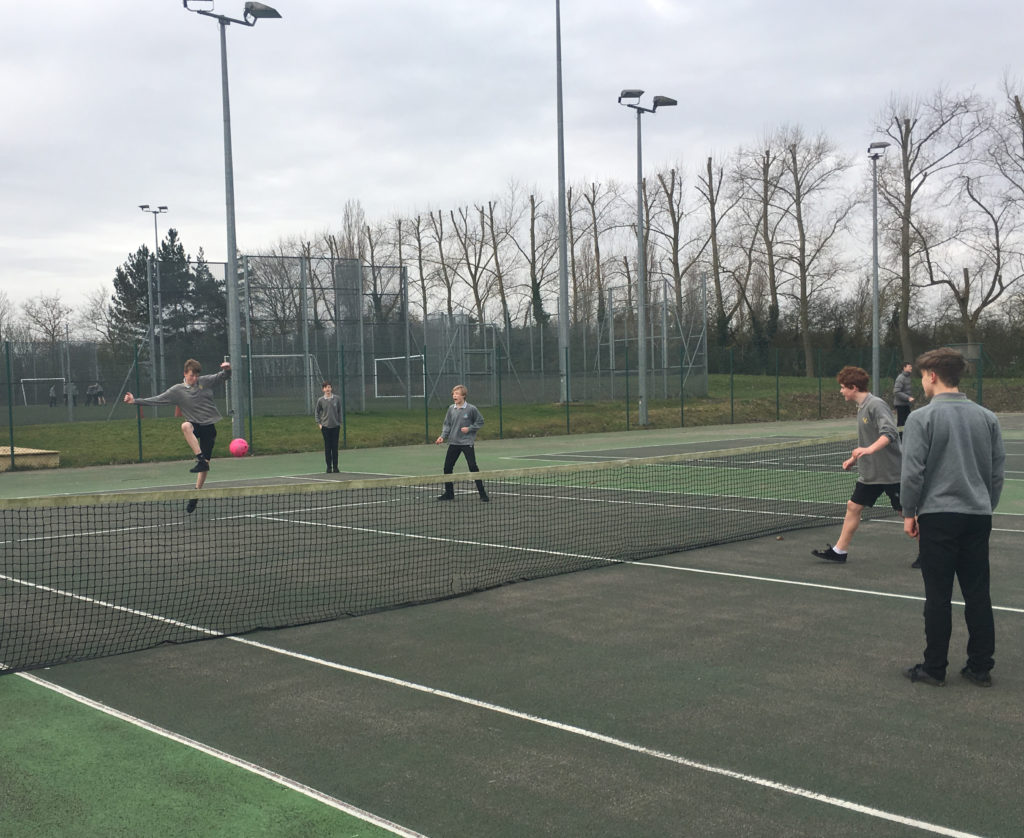
Reading time: 3 minutes. SSAT member blog: Share feedback and comments below
Jane Clarke, Head of PE, Comberton Village College, shows how students and staff throughout the school are benefiting from a weekly activity programme
Being active is good for children. Evidence shows it can help combat a range of issues confronting today’s young people (in an era where the screen is king), including mental health, body image, low self-esteem and, simply, socialisation.
At Comberton Village College, an 11-18 school in rural Cambridgeshire, getting students moving in more than their timetabled PE lessons and optional extracurricular activities is taken very seriously. We introduced active form time three years ago to give the students more activity and fresh air and less sitting down during the school day.
Active form times are embedded into the weekly registration activities for all students from years 7-11 – and both staff and students are feeling the benefits. Students have reported they really enjoy active form time, and tutors like going out with their tutor groups and spending time with them in a different environment. There have been no behaviour issues reported during active form time, and some tutors have asked if they can go out more often than the current once a week slot allocated.
Currently each year group goes out on the same day. The choice of activity is down to the individual tutor group within their allocated space. Each group has two weeks in one space before moving on to another. The schedule is produced annually in advance so tutor groups can plan their activities depending on the size, location and whether they are inside or outside.
Wide choice of activities
 Equipment is available, including balls, hoops, skipping ropes and tennis rackets, but equally tutor groups can choose simply to walk round the school grounds, chatting and socialising.
Equipment is available, including balls, hoops, skipping ropes and tennis rackets, but equally tutor groups can choose simply to walk round the school grounds, chatting and socialising.
Sports leaders have been assigned to help the younger years. Some of the most popular activities include dodgeball – and specially adapted versions of existing sports, like foot tennis!
Data collected from the Youth Sport Trust (YST) has shown the positive impact of physical activity in so many areas of student life and learning.
The YST studies have shown benefits in a wide range of areas, not least that students start to understand the importance of physical activity and wellbeing. It increases:
- confidence
- mood
- self-esteem
- memory
- alertness
- attendance
- attainment.
As well as the obvious benefits to students in helping combat mental health issues, increasing self-esteem, greater interaction with peers and reducing the risk of long-term heart disease and other illnesses, there are also benefits to the school.
It is a cost-effective way to embed the health agenda. And for staff too it reduces the risk of mental illness, depression and long-term illness.
Building on these active form times, Comberton has recently looked at encouraging activity within classroom-based lessons during the school day. Staff received training from YST on ‘the power of an active classroom’ and were put through their paces – pretending to bobsleigh and performing the mobot – during the session.
The plan now is to embed this in classroom practice and encourage and facilitate students to be active, even if it’s only for a minute a lesson, to boost concentration and engagement.
The plan now is to embed ‘pretend activities’ in class to enable students to be active, even if it’s only for a minute a lesson, to boost concentration and engagement
Read more about improving student wellbeing: How do we improve children’s mental health and wellbeing? Get them active!

Find out more about Jane Clarke and The Cam Academy Trust
